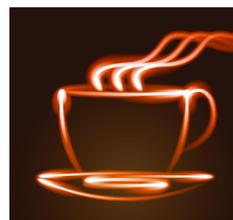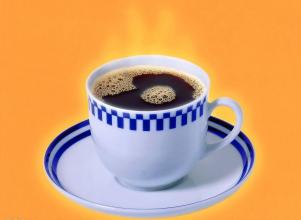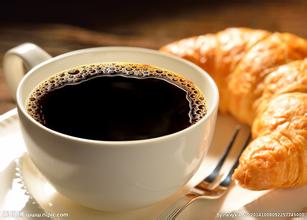Introduction to the characteristics of Jamaica Blue Mountain Coffee boutique Coffee Bean Flavor Manor
The best Blue Mountain Coffee is undoubtedly one of the best. Although the price can ensure an adequate supply of Blue Mountain coffee, it does not guarantee the best flavor of the coffee. Also, this kind of coffee tastes much more expensive than it looks. If you want to taste its best flavor, you have to put more coffee beans than other coffee, otherwise the flavor will be a little different, so the flavor is that it has 10% to 15% more coffee beans than the coffee whose price is inferior to it.
The real Blue Mountain Coffee is made from the best local raw coffee beans, which is the fun of tasters. Its flavor is rich, balanced, fruity and sour, and can meet people's various needs. In addition, the high-quality fresh Blue Mountain coffee has a long-lasting flavor, as drinkers say, with a long aftertaste.
In 1717 King Louis XV of France ordered the cultivation of coffee in Jamaica for twenty years.
Blue Mountain Coffee
Blue Mountain Coffee (6)
In the mid-1970s, the Governor of Jamaica, Sir Nicholas Lloyd (Nicholas Lawes), imported Arabica seeds from Martinique and began to plant them in St. Andrew. To this day, St. Andrews is still one of the three major producers of Jamaican Blue Mountain Coffee, with the other two producing areas: Portland (Portland) and St. Thomas (St.Thomas). In eight years, Jamaica exported more than 375 tons of pure coffee. In 1932, coffee production reached its peak and more than 15000 tons of coffee was harvested.
In 1950, the Government of Jamaica established the Jamaica Coffee Industry Committee (the Jamaica Coffee Industry Board), which sets quality standards for Jamaican coffee and oversees the implementation of quality standards to ensure the quality of Jamaican coffee. The Commission awarded special official seals to raw and roasted coffee exported from Jamaica, which is the highest-level national coffee institution in the world. The origin of Blue Mountain Coffee can be represented by Mavis Bank Coffee Factory (M.B.C.F), Blue Mountain Coffee Co-operative Factory (M.H.C.C.T.), Portland Blue Mountain Coffee Cooperative Factory (P.X.X.S.H.), Coffee Industry Association (Wallenford), Coffee Industry Association (St. John Peak) and J.A.S.
By 1969, the situation had improved because the use of Japanese loans had improved the quality of production, thus ensuring the market. By now, this kind of coffee has reached the point of being feverishly loved.
By 1981, about 1500 hectares of land in Jamaica had been reclaimed for coffee cultivation, followed by the opening of another 6000 hectares of coffee land. In fact, today's Blue Mountain area is a small area with a planting area of only 6000 hectares, and it is impossible to grow all the coffee marked "Blue Mountain" there. Another 12000 hectares of land is used to grow other two types of coffee: Alpine Coffee and Jamaican Superior Coffee. Jamaican Blue Mountain Coffee is harvested from June to November. It is usually picked by hand. After picking, it goes through washing, peeling, fermentation, dehydration, drying, shelling, baking and other processes to get a ripe blue mountain coffee bean. In the process of raw bean processing, there are special personnel responsible for quality supervision in each step. For the very precious Blue Mountain Coffee, the packing and transportation mode adopted by the Jamaican government is also different. Unlike other coffees, Blue Mountain Coffee is not packed and transported in cloth bags at 60kg / bag, but in wooden barrels at the standard of 70kg / barrel. Jamaica is also the last country to still transport coffee in traditional wooden barrels. Jamaican Blue Mountain coffee beans must obtain a certificate of quality recognition issued by the Jamaican Coffee Industry Committee, which is the only body in Jamaica authorized to issue such a certificate. And each batch of exports will have special quality supervision experts responsible for sampling, baking, grinding and brewing coffee, and finally make a judgment on whether it is up to the standard or not.

Important Notice :
前街咖啡 FrontStreet Coffee has moved to new addredd:
FrontStreet Coffee Address: 315,Donghua East Road,GuangZhou
Tel:020 38364473
- Prev

Manning Coffee Flavor in Indonesia; introduction to the characteristics of boutique coffee beans in the manor area
Japan occupied Indonesia in 1942. After Japan surrendered in 1945, Indonesia broke out the August Revolution. On August 17, 1945, it declared its independence and established the Republic of Indonesia. After its independence, Indonesia successively armed against the invasion of Britain and the Netherlands, and launched three wars of independence. After 1947, the Netherlands and Indonesia signed the India-Netherlands round table meeting in November 1949 after many wars and negotiations.
- Next

Introduction to the characteristics of Tanzania Coffee Flavor and Taste varieties
The eastern coastal areas and inland lowlands of Tanzania have a savanna climate, while the western inland plateau has a tropical mountain climate, with an average temperature of 21-25 ℃ in most areas. More than 20 islands in Zanzibar have a tropical maritime climate, hot and humid all the year round, with an annual average temperature of 26 ℃. [6] rainfall types can be divided into bimodal distribution and unimodal distribution. Areas with double bee distribution of rainfall include
Related
- Detailed explanation of Jadeite planting Land in Panamanian Jadeite Manor introduction to the grading system of Jadeite competitive bidding, Red bid, Green bid and Rose Summer
- Story of Coffee planting in Brenka region of Costa Rica Stonehenge Manor anaerobic heavy honey treatment of flavor mouth
- What's on the barrel of Blue Mountain Coffee beans?
- Can American coffee also pull flowers? How to use hot American style to pull out a good-looking pattern?
- Can you make a cold extract with coffee beans? What is the right proportion for cold-extracted coffee formula?
- Indonesian PWN Gold Mandrine Coffee Origin Features Flavor How to Chong? Mandolin coffee is American.
- A brief introduction to the flavor characteristics of Brazilian yellow bourbon coffee beans
- What is the effect of different water quality on the flavor of cold-extracted coffee? What kind of water is best for brewing coffee?
- Why do you think of Rose Summer whenever you mention Panamanian coffee?
- Introduction to the characteristics of authentic blue mountain coffee bean producing areas? What is the CIB Coffee Authority in Jamaica?

